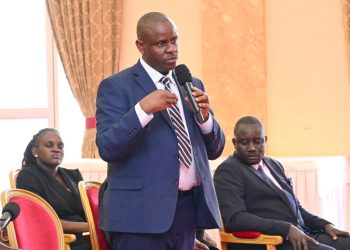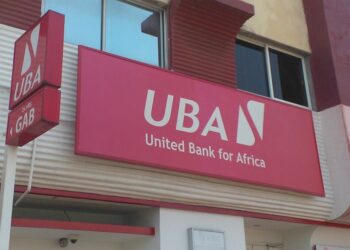MPs investigating the closure of seven defunct banks have asked Bank of Uganda (BOU) to account for sh478b that was purportedly injected into Crane Bank as a liquidity support facility after seizure.
Meeting officials from BOU yesterday led by the Governor Emmanuel Mutebile, the MPs on Parliament’s committee on commission statutory authorities and state enterprises (COSASE) wondered why the central bank decided to inject huge amounts of money into the bank, yet it refused Crane Bank’s request for capitalization.
In an audit report to Parliament, the Auditor General, John Muwanga, said Crane Bank needed sh157b to get back onto its feet. Earlier,Crane Bank had also requested for a capitalization facility of $115m (about sh429b) from BOU as a lender of last resort to help sort out its immediate and longer term liquidity issues. Muwanga revealed that BOU commenced the injection of the money into the bank on October 21, 2016 to January 9 last year.
This was the period during which the bank was under statutory management of BOU before it was sold to dfcu Bank at sh200b.
“Instead of helping the bank stabilize, you decided to close it and inject into it much more than what was needed to solve its problem. Where did you get this money and what exactly did you spend it on during the few months you managed it,”Moses Kasibante (Rubaga North) asked.
Kasibante’s argument was supported by the committee chairperson Abdu Katuntu and other MPs who asked the bank officials to explain whether their intention was to salvage Crane Bank or close it.
“Was your intention to close the bank or help it come out of its financial woes? It does not make economic sense to spend more than what it required to stabilize it,” Katuntu said.
Katuntu wondered whether there were any efforts by BOU to return the bank into compliance with prudential standards as required by the law. BOU director of commercial banking Ben Ssekabira informed the committee that Crane Bank had run out of cash and needed sh157b to stabilize.
He said when they applied for the facility; the money was too much for BOU to lend out to a commercial bank according to the law.
“The requested amount of $115m was too much for BOU to lend according to the law. We could only give them a maximum facility of sh79.2b repayable within a year. Unfortunately, when they presented the security of bank branches, we established that the land had been transferred into the names of another company,” Ssekabira said.
He explained that when the audit established that the bank had financial problems, BOU directed it to immediately capitalize the bank with sh32b.
“We gave them a deadline of September. The shareholders could only manage to raise sh26b. The deadline passed so we had to close it.Crane Bank had other problems. The bank was investing in its subsidiary,” he added.
Katuntu asked the officials to come with the documents and accountability today. BOU executive director supervision of commercial banks Justine Bagyenda on Tuesday informed the committee that by the March 31, 2016,the bank’s capital had fallen from sh195.7b to negative sh16b.































































